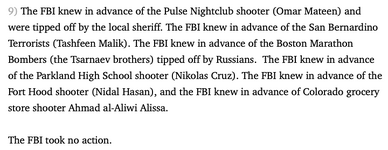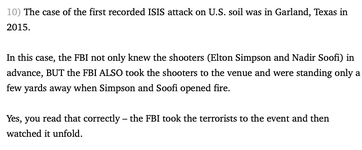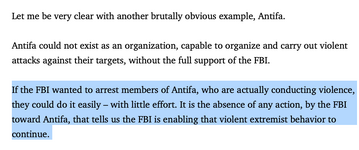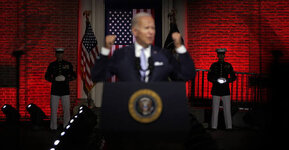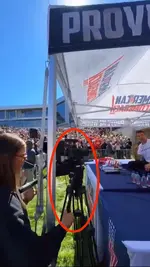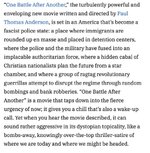Found this gem in my continued exploration of Charlie's work, may he rest in peace. A welcome contrast to the usual hard-to-control coffee table debates, such a pleasure to see how sharply he performed in a more formal setting.
Again, summarised using
https://gist.ly/youtube-summarizer for the folks who can't spare the time to watch the full video.
## Introduction
In a recent address at the Oxford Union, a prominent American commentator delivered a provocative and impassioned defense of former President Donald Trump, while drawing sharp contrasts between the current states of Britain and America. The speech, marked by pointed corrections of perceived misinformation and a critique of both British and American political trajectories, offers a window into the mindset of a segment of the American right. It also serves as a rallying cry for the restoration of Western values, national identity, and a rejection of progressive policies that, in the speaker’s view, threaten the foundations of both nations.
This article unpacks the key themes, arguments, and rhetorical strategies employed in the speech, exploring the broader implications for transatlantic politics, national identity, and the ongoing debates over immigration, free speech, and cultural change.
## Setting the Stage: Correcting the Record
The speaker begins by addressing several points of contention raised in previous discussions, setting a combative tone and establishing credibility. By offering monetary incentives for proof of claims—such as the deportation of a U.S. citizen under Trump—and systematically debunking what he describes as “lies” and “hoaxes,” the speaker positions himself as a truth-teller in a landscape rife with misinformation.
He corrects the record on several issues:
- **Deportation of U.S. Citizens:** The claim that Trump deported U.S. citizens is dismissed as false, with the speaker challenging the audience to provide evidence.
- **Charlottesville and Trump’s Remarks:** The oft-cited “people on both sides” comment is reframed as a reference to the statue debate, not an endorsement of white supremacists.
- **Military Service:** The credentials of Pete Hegseth are defended, emphasizing his decorated military service beyond his role as a television host.
- **January 6th:** The characterization of the Capitol events as an “insurrection” is rejected, with the speaker noting that most attendees were nonviolent and entered the building after being “invited.”
- **Canadian Border and Terrorism:** The speaker highlights the issue of border security, particularly the Canadian border, and the influx of individuals on terrorist watch lists.
- **South Africa:** He criticizes the lack of awareness about political violence and anti-white rhetoric in South Africa, underscoring the importance of global context.
These corrections serve not only to challenge the audience’s assumptions but also to frame the subsequent arguments within a narrative of media distortion and elite misinformation.
## The Decline of Britain: A Cautionary Tale
### Britain’s Glorious Past
The speaker’s admiration for Britain is evident as he recounts its historical achievements: Shakespeare, the steam engine, Adam Smith, the defeat of Napoleon, the abolition of the slave trade, and resistance to Hitler. He credits Britain with laying the foundations for American greatness, suggesting that “Make America Great Again” is, in essence, a call to return to British roots.
### Contemporary Britain: Loss of Values
However, this reverence quickly turns to lamentation. The speaker argues that Britain’s ruling elites are abandoning the very values that made the nation great. He points to several areas of decline:
- **Freedom of Speech:** Citing statistics from the Telegraph, he notes that 30 people a day are arrested for offensive social media posts. Silent prayer near abortion clinics can result in arrest, as in the case of a 74-year-old woman in Scotland.
- **Economic Stagnation:** The average British worker earns less today than in 2008, with incomes outside London lagging behind every U.S. state. High energy prices, attributed to net-zero policies, are blamed for stifling industry.
- **National Identity and Immigration:** The speaker criticizes the Conservative Party for failing to preserve British identity, allowing mass immigration without regard for Western values or skills. He highlights recent moves by Labour to deport criminal immigrants, suggesting that Conservatives neglected this responsibility.
### The Erosion of Christianity
A central concern is the decline of Christianity in Britain, the birthplace of numerous denominations. The speaker warns that practicing Muslims will soon outnumber practicing Christians, framing this as a catastrophic shift. He argues that migration patterns reflect a one-way movement from Muslim-majority countries to Christian-majority ones, never the reverse.
## America at the Crossroads
### The Trump Effect
The speaker contends that Donald Trump has fundamentally altered the trajectory of American—and by extension, Western—politics. Where once it was assumed that America would inevitably follow Britain’s leftward drift, Trump has “destroyed the assumption that the left’s victory was inevitable.”
### Immigration and Border Security
Under President Biden, the speaker claims, over 10 million illegal aliens entered America, facilitated by social media guides and lax enforcement. He describes entire neighborhoods being “turned over to migrants living on the dole,” with America treated as a “pile of wealth for the rest of the planet to plunder.”
Trump’s response, according to the speaker, was decisive: border crossings were cut by 99.9%, exposing previous leaders’ claims of an “unfixable mess” as lies. However, he notes that simply closing the border does not address the millions already present illegally, likening the situation to locking the door after a burglary.
### The Fight Against DEI
The speaker rails against Diversity, Equity, and Inclusion (DEI) policies, which he describes as a form of “tyranny.” He argues that these policies violate the Constitution’s prohibition of racial discrimination, resulting in:
- Denial of jobs and promotions based on race
- Exclusion of students from universities
- Denial of federal contracts to companies based on ownership demographics
- Legal action against companies not meeting diversity quotas
Trump’s efforts to dismantle DEI are praised, but the speaker calls for more aggressive action: immediate withdrawal of federal funding from non-compliant universities and audits of federal contractors to root out DEI practices.
### The Transgender Debate
The speaker addresses the rise of transgender policies in schools and medical institutions, condemning the encouragement of hormone treatments and surgeries for children. He cites cases where parents risk losing custody for objecting to their child’s transition and shares stories of “detransitioners” who regret their experiences.
Trump’s actions to protect women’s sports are highlighted, with the speaker disputing claims that only a few women have been affected by transgender athletes. He asserts that over 890 women have lost awards and championships to “biological men,” framing this as a significant issue.
## The Call for More: Policy Demands
The speaker is unapologetic in his demands for further action:
- **More Deportations:** He calls for increased efforts to remove illegal immigrants.
- **More Peace Deals:** He advocates for diplomatic achievements.
- **Defunding Woke Colleges:** He urges the withdrawal of funding from institutions promoting progressive ideologies.
- **Elimination of DEI:** He wants those enforcing DEI policies to lose their jobs.
He frames these demands as the will of the American people, asserting that democracy should reflect popular desires—even when they conflict with elite preferences.
## Lessons for Britain: A Transatlantic Appeal
### The Mirror Effect
The speaker warns that America’s current struggles mirror Britain’s past and present, urging the British audience to learn from American efforts to resist decline. He suggests that Labour’s recent policy shifts are a direct result of Trump’s influence, implying that strong leadership can force change even among political opponents.
### Restoring National Greatness
The speech concludes with a direct appeal to British pride and patriotism. The speaker urges the audience to reject mediocrity and strive for a “Great Britain” worthy of its history. He provocatively suggests that Britons should “all be wearing MAGA hats and cheering Donald Trump on every step of the way,” framing Trump’s agenda as a blueprint for national renewal.
## The Broader Context: Populism and National Identity
The speech reflects broader trends in Western politics, including the rise of populism, skepticism toward globalization, and the reassertion of national identity. These movements are driven by concerns over economic stagnation, cultural change, and perceived loss of sovereignty.
Trump’s presidency, and the speaker’s defense of it, exemplify the appeal of strong leadership, clear boundaries, and a rejection of progressive orthodoxy. The invocation of British history and values serves to situate these debates within a transatlantic context, suggesting that the fate of America and Britain are intertwined.
## Conclusion
The Oxford Union address offers a vivid snapshot of contemporary conservative thought, blending nostalgia for national greatness with a call to action against perceived threats. By juxtaposing Britain’s past glory with its present challenges, and framing Trump as a bulwark against decline, the speaker seeks to inspire both Americans and Britons to reclaim their heritage.
While the arguments are forceful and the rhetoric stirring, the speech also raises important questions about the nature of democracy, the role of immigration, the meaning of equality, and the future of Western societies. As debates over national identity and cultural change continue to shape politics on both sides of the Atlantic, the themes explored in this address will remain central to the ongoing struggle over the direction of the West.






